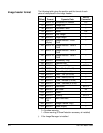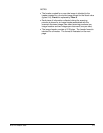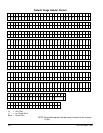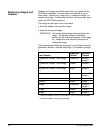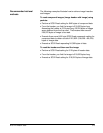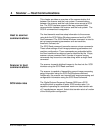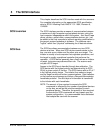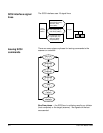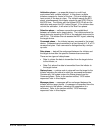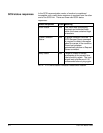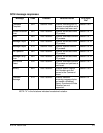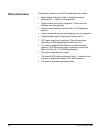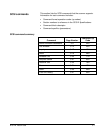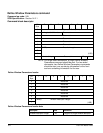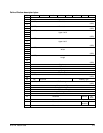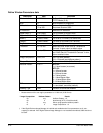
A-61124 March 1999 5-3
Arbitration phase — an essential phase in a multi-host
environment with multiple initiators. In this phase, multiple
initiators compete for control of the bus. Only one initiator can
have control of the bus at a time. The initiator asserts the BSY
signal, simultaneously this initiator outputs its own SCSI ID bit to
the SCSI bus. The initiator with the highest SCSI ID will win the
arbitration and assert the SEL (select) signal. If the initiator does
not win the arbitration, it will revert to the Bus Free phase.
Selection phase — software connections are established
between an initiator and a target device. The initiator selects the
target device by asserting the ID bit of the selected device and its
own ID bit. The initiator then de-asserts the BSY signal, selecting
the target device.
Command phase — the initiator issues a command to the target
device. Commands are transmitted in a fixed format of 6, 8, or 10
consecutive bytes. Each command is distinguished by a unique
op code.
Data phase — data will be exchanged between the initiator and
the target device after the specific commands are executed.
There are two types of data phases:
• Data-In, where the data is transmitted from the target device
to the initiator, or
• Data-Out, where the data is transmitted from the initiator to
the target device.
Status phase — a status code is returned from the target to the
initiator indicating the status in which the command terminated.
Occasionally, the system enters the Status phase from the
Command phase. Refer to the section entitled, “SCSI status
responses” later in this chapter.
Message phase — messages will be exchanged between the
initiator and the target device. A message is transmitted from the
target device to the initiator, indicating the completion of a
command. Refer to the section entitled, “SCSI message
responses” later in this chapter.



